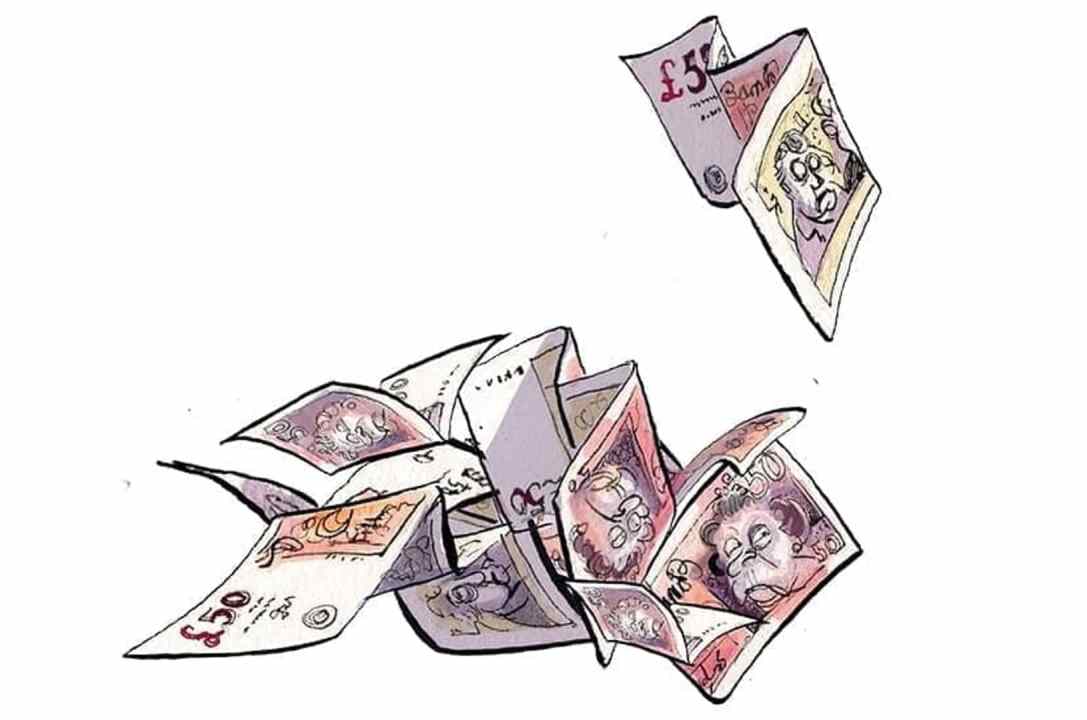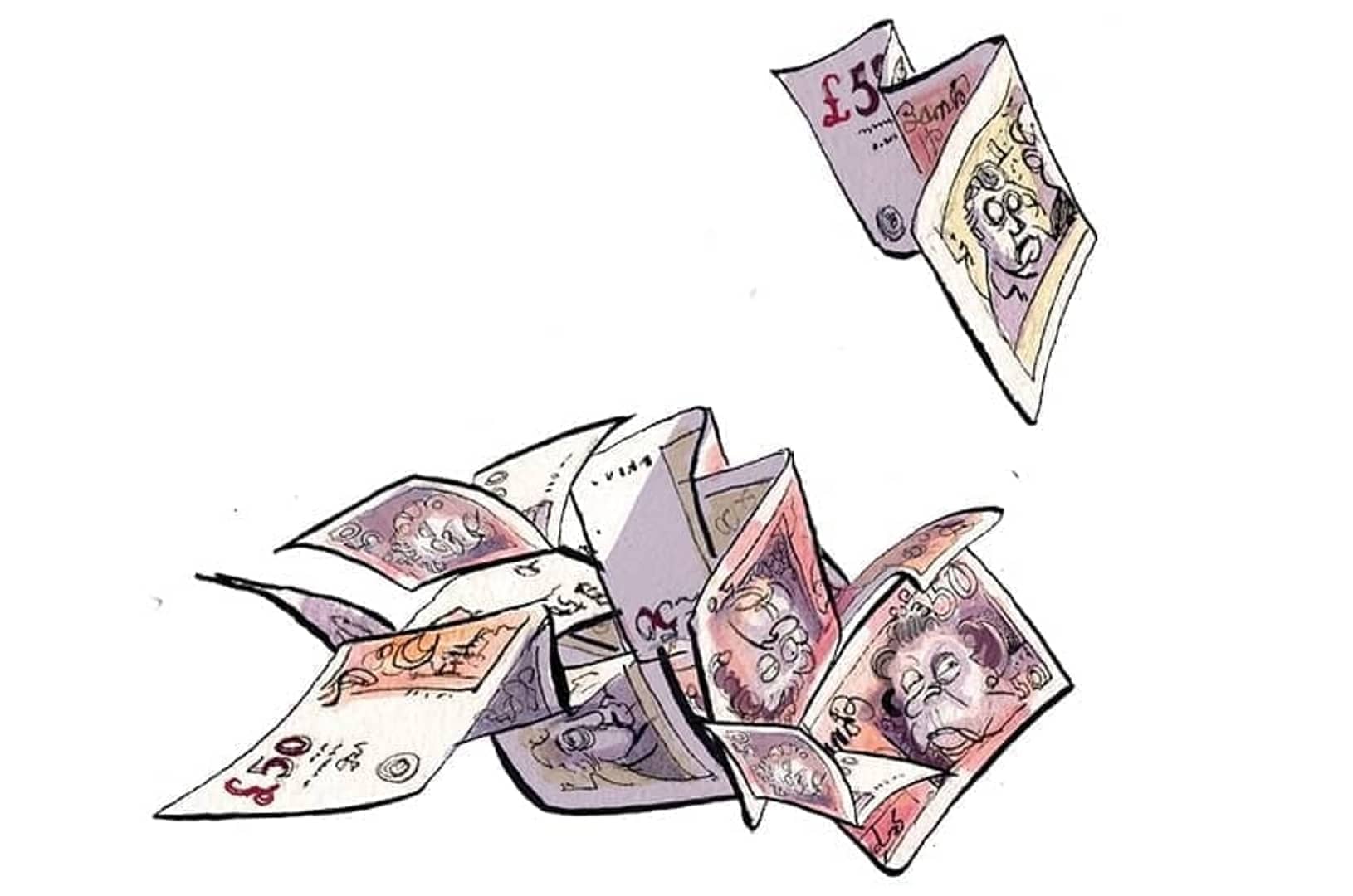A falling exchange rate and rising bond yields are the typical characteristics of a financial crisis in an emerging market. Those who never forgave the UK for its decision to leave the EU like to remind us of this fact right now. But an emerging market crisis doesn’t even begin to capture what is going on.
This is a macro financial crisis story; EU membership is not the issue here. The UK had its independent macro policies when it was still in the EU. What is happening in the UK, and worldwide, is the realisation that fiscal and monetary policies have run out of our control. You can’t have 4-5 per cent core inflation, 2 per cent interest rates, and an expansionary fiscal policy at the same time. Markets are now pricing in UK base interest rates at 6 per cent next year; a significantly higher level of interest is coming to a central bank near you.
Many families will struggle with mortgage payments, a financial shock that is comparatively larger for them than the electricity price shock
Broad macro crises always start somewhere. The Asian financial crisis started in Thailand. The euro area’s sovereign debt crisis was triggered by an excessive deficit in Greece, but it spread to countries like Spain that observed fiscal rules. The global financial crisis was triggered by lending practices in the US housing market and it spread to the global banking system. If you think that this is about Brexit, you could not be more wrong.
At a deeper level, what is really ending is the illusion that economic policy can, or should, do whatever it takes, the ultimate refutation of Mario Draghi’s infamous mantra. This is a painful experience for a generation of inexperienced policymakers with no memory of past crises, insufficient understanding of economic history and armed with an excessive sense of self-confidence. Before the age of exuberance, economic policy used to be difficult because it operated under constraints. We are re-entering that world.
The UK’s budget was the fiscal expansion too far. The strategy was clearly risky, but what wasn’t clear was that the risks would become so evident so quickly. There are vulnerable spots in the euro area too. France’s overall financial position is not all that different from the UK’s. France has a slightly higher debt-to-GDP ratio than the UK. France and the UK have roughly similar current account deficits. The projected UK budget deficit for the current financial year is around 8 per cent of GDP. The French government just came out with a 5 per cent budget proposal that could inflate even further. The Bank of England started that rate-rising cycle earlier, but the European Central Bank is clearly catching up. The pound lost heavily against the dollar, but so did the euro. The pound also lost against the euro over the last couple of days but this is not really the big issue. This is more of a story about the dollar than about the British economy.
The real issue for the UK economy is the interest rate. For starters, a lot of UK business models rely on low interest rates. The housing market has been supported by buy-to-rent schemes, which have ceased to become viable overnight. House prices in some areas have doubled as a result of the Airbnb boom. Over the next year, we will see the expiry of many mortgages that were fixed in the good old days of near zero interest rates. With base and mortgage rates at a predicted 6 per cent, expect a lot of forced sellers trying to offload their debt burden. Many families will struggle with mortgage payments, a financial shock that is comparatively larger for them than the electricity price shock. Yesterday we saw a couple of UK mortgage banks suspend new products. It will become harder to obtain a mortgage. Some UK mortgage lenders lent out mortgages at five to seven times annual income, mostly to young people on a first-time mortgage. Many of these young first-time buyers will be financially wiped out once their fixed-term mortgage comes to an end.
Germany has had a housing boom too, but prices in city areas are now falling fast. There the impact will be on rents, which are rising. Many German landlords are simply selling up, reducing the number of rentals available. Disposable income is the big issue there along with an industrial business model, predicated on cheap energy, that is also badly in need of updating. But Germany has a strong fiscal position and a conservative finance minister. This is not the case everywhere in the euro area.
The real danger is that cornered governments pile bad policies on existing bad policies. Yesterday we heard that Kwasi Kwarteng was considering offsetting measures – not a reversal of some of his tax cuts, but a cut in investment in the NHS and infrastructure projects. This is how the eurozone crisis became the eurozone crisis. Kwarteng should keep investing, cap the energy support schemes and suspend income tax cuts. If you really want to help companies, facilitate immigration, lower bureaucratic thresholds and minimum salary hurdles. Labour supply is where Brexit is doing real structural damage. This is not the cause of this crisis, but an unnecessary burden.
What about the politics? This government still has two years until the next elections. This is still very much mid-term. History suggests that electorates switch parties during financial crises – the UK in 1979, US in 1992 and 2000, and UK and US in 2009-2010. For the Conservatives, what is going on right now is existential. Giorgia Meloni’s victory is a reminder of what happens when an economic system malfunctions for a long time.








Comments